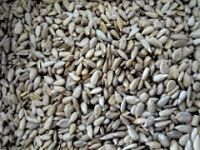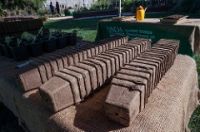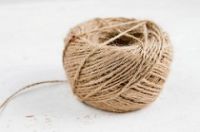Tips For Reducing Plastic Use in the Garden

Grow Plants From Seed or Propagate Wherever Possible
Growing your own plants from seed or propagating your own plants will help to reduce the number of new plants you will buy. Since most plants come in plastic, this can help us to reduce the amount of plastic we bring into our lives and our gardens.
 Save Your Own Seeds & Buy Seeds in Paper, Not Plastic
Save Your Own Seeds & Buy Seeds in Paper, Not Plastic
When you buy seeds, try to buy them in paper rather than in plastic. Best of all, however, get used to saving your own seeds, which can reduce your impact and make your garden more sustainable.
Reuse Plastic Items Rather Than Buying New
You can help to reduce plastic waste by reusing old plastic items. Reuse any old pots or seed trays you already have, and consider using food packaging for these purposes in your garden.
 Choose Biodegradable Pots (Or Make Your Own)
Choose Biodegradable Pots (Or Make Your Own)
Biodegradable seed pots are often an excellent alternative to plastic ones. You can buy biodegradable pots if you like, but it is also possible to make your own using toilet roll tubes, newspaper or other scrap card or paper.
 Buy Wooden Handled Tools
Buy Wooden Handled Tools
When new tools are required, look for options with wooden or metal handles, rather than plastic ones. These can be extremely good quality, do the job just as well, yet are also kinder on the environment.
Use Organic Materials In Place of Synthetic Horticultural Fleece
Another change that you can make to reduce plastic use in the garden is to choose to use organic materials to protect plants from cold weather in place of synthetic fabrics such as horticultural fleece. Straw, bracken or sheep's wool may all be viable options. Recycled natural fabrics may also be used to cover tender plants.
 Choose A Natural Twine/ Mesh in Place of Plastic Twine or Mesh
Choose A Natural Twine/ Mesh in Place of Plastic Twine or Mesh
Another small change you can make is to choose natural twine and mesh to provide a framework or protection for plants. This will avoid the need for plastics in a range of applications.